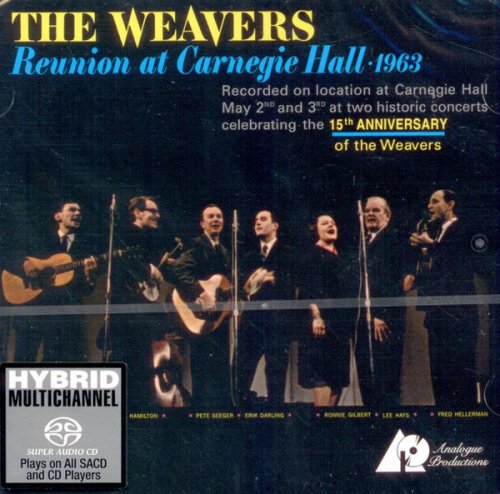
“And she had a courageous voice: There was a tremendous sense of joy and energy and courage in her voice. I of course was anything but a soprano! So when I heard the Weavers I found another voice, one that was definitely the voice of a strong woman, someone able to stand on her own two feet and face adversity. “When I first began to sing, most of the better-known people who were singing folk songs had those sort of Kentucky mountain sopranos. For the next two years, touring and recording and appearing on radio and television, they were among the biggest musical stars in the country. Instantly a hit, they were so popular that they stayed at the Vanguard for six months and were signed by Decca Records. They were on the verge of dispersing when Max Gordon, owner of the Village Vanguard in Manhattan, booked them to play for two weeks during the Christmas holidays. In 1949 they were still an informal ensemble, playing at union meetings and on picket lines but rarely if ever for money. Gilbert a dress - they were nonetheless targeted by the anti-Communist right wing. Hardly confrontational or subversive in their presentations - in their public appearances they were well groomed, the men often wearing jackets and ties and Ms. The Weavers’ own narrative was a dramatic one, a product of the political moment. “We still had the feeling that if we could sing loud enough and strong enough and hopefully enough, it would make a difference.”

Gilbert recalled in “The Weavers: Wasn’t That a Time,” a 1982 documentary about the group. “We sang songs of hope in that strange time after World War II, when already the world was preparing for Cold War,” Ms. The Kingston Trio, the Limeliters and Peter, Paul & Mary, among others, were direct musical descendants slightly more distant relations included Bob Dylan, Joan Baez and Phil Ochs. Hays, as well as songs from other cultures, including “Wimoweh” from Africa and “Tzena Tzena Tzena,” a Hebrew song popular in Israel (though it was written before Israel was established in 1948).

Like-minded musicians with progressive political views, they performed work songs, union songs and gospel songs, and became known for American folk standards like “On Top of Old Smoky,” “Goodnight, Irene” (first recorded by the blues singer Lead Belly), Woody Guthrie’s “So Long, It’s Been Good to Know Yuh” and “The Hammer Song” (a.k.a. The Weavers, whose other founding members were Pete Seeger, Lee Hays and Fred Hellerman, started playing together in the late 1940s. Gilbert had a résumé as a stage actor and later in life a career as a psychologist, but her enduring impact was as a singer.

The death was confirmed by her partner, Donna Korones. Ronnie Gilbert, whose crystalline, bold contralto provided distaff ballast for the Weavers, the seminal quartet that helped propel folk music to wide popularity and establish its power as an agent of social change, died on Saturday in Mill Valley, Calif.


 0 kommentar(er)
0 kommentar(er)
